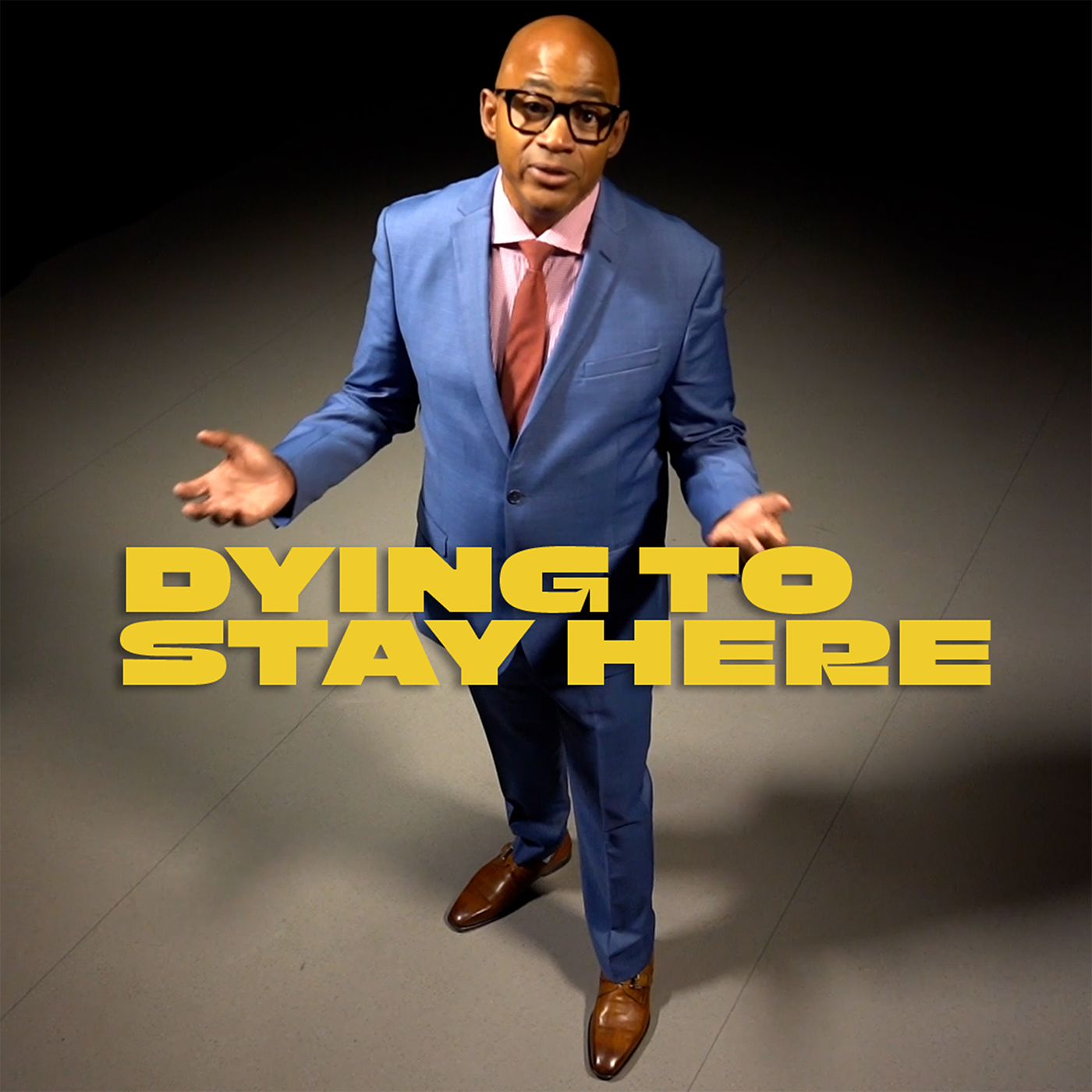Dying To Stay Here

Dying To Stay Here
Podcast Description
This project has been a true work of passion for host Chuck Cantrell, driven by a deep desire to educate, inspire, and create momentum for meaningful change. Through thoughtful analysis and powerful storytelling, the series aims to shed light on the pressing economic and social challenges facing Black Americans in Silicon Valley and beyond.
Join us as we embark on this critical journey—subscribe and be part of the conversation for equity and justice.
Chuck Cantrell’s “Dying to Stay Here” video podcast series is a compelling exploration of the structural economic and social barriers facing Black Americans, particularly in Silicon Valley and Santa Clara County. Hosted by economist and San Jose planning commissioner Chuck Cantrell, the series draws on public data and personal experience to reveal how generational poverty, discriminatory business cycles, and systemic racism continue to marginalize African Americans in one of the nation’s wealthiest regions.
Each episode delves into topics such as employment disparities, the “last in, first out” layoff practices, housing unaffordability, and the alarming overrepresentation of Black residents among the unhoused and those facing premature mortality. Cantrell’s analysis, informed by decades of research and lived experience, highlights how these forces not only trap Black families in cycles of disadvantage but also serve as early warning signs—like canaries in a coal mine—of broader societal crises.
Podcast Insights
Content Themes
The podcast focuses on critical themes such as structural racism, generational poverty, and employment disparities, with episodes exploring topics like the impact of discriminatory business practices and the severe housing crisis affecting Black residents in Silicon Valley. For example, Episode 1 features Keanna Ward, who shares her lived experience of being unhoused and highlights systemic barriers to stable housing.

This project has been a true work of passion for host Chuck Cantrell, driven by a deep desire to educate, inspire, and create momentum for meaningful change. Through thoughtful analysis and powerful storytelling, the series aims to shed light on the pressing economic and social challenges facing Black Americans in Silicon Valley and beyond.
Join us as we embark on this critical journey—subscribe and be part of the conversation for equity and justice.
Chuck Cantrell’s “Dying to Stay Here” video podcast series is a compelling exploration of the structural economic and social barriers facing Black Americans, particularly in Silicon Valley and Santa Clara County. Hosted by economist and San Jose planning commissioner Chuck Cantrell, the series draws on public data and personal experience to reveal how generational poverty, discriminatory business cycles, and systemic racism continue to marginalize African Americans in one of the nation’s wealthiest regions.
Each episode delves into topics such as employment disparities, the “last in, first out” layoff practices, housing unaffordability, and the alarming overrepresentation of Black residents among the unhoused and those facing premature mortality. Cantrell’s analysis, informed by decades of research and lived experience, highlights how these forces not only trap Black families in cycles of disadvantage but also serve as early warning signs—like canaries in a coal mine—of broader societal crises.
In “Genocide in Slow Motion,” Dying to Stay Here host Chuck Cantrell and guest Kenyatta Yarn expose systemic racism in Black maternal health and infant mortality in Santa Clara County. Through the traumatic birth, NICU journey of her son, Kristopher, Kenyatta shows how disbelief, bias, and delayed care turn a healthy pregnancy into a preventable tragedy, and why empathy, accountability, and Black-led support are essential to saving Black mothers and babies.

Disclaimer
This podcast’s information is provided for general reference and was obtained from publicly accessible sources. The Podcast Collaborative neither produces nor verifies the content, accuracy, or suitability of this podcast. Views and opinions belong solely to the podcast creators and guests.
For a complete disclaimer, please see our Full Disclaimer on the archive page. The Podcast Collaborative bears no responsibility for the podcast’s themes, language, or overall content. Listener discretion is advised. Read our Terms of Use and Privacy Policy for more details.